 Petzlover
Petzlover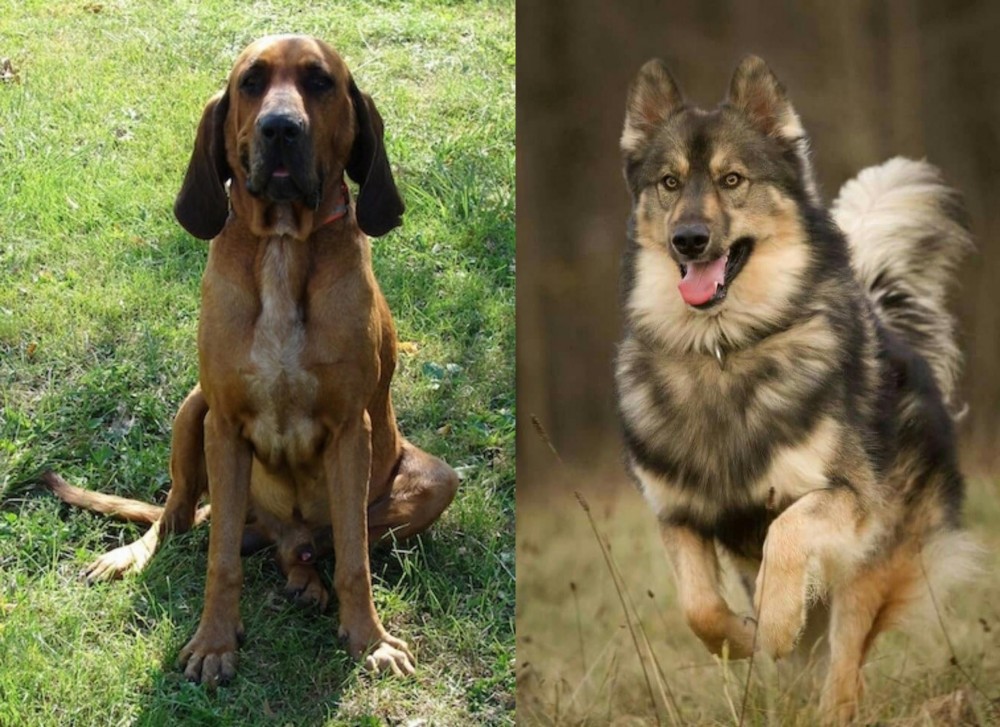 Both Majestic Tree Hound and Native American Indian Dog are originated from United States. Majestic Tree Hound may grow 42 cm / 17 inches higher than Native American Indian Dog. Majestic Tree Hound may weigh 70 kg / 154 pounds lesser than Native American Indian Dog. Majestic Tree Hound may live 6 years less than Native American Indian Dog. Majestic Tree Hound may have less litter size than Native American Indian Dog. Majestic Tree Hound requires Low Maintenance. But Native American Indian Dog requires High Maintenance
Both Majestic Tree Hound and Native American Indian Dog are originated from United States. Majestic Tree Hound may grow 42 cm / 17 inches higher than Native American Indian Dog. Majestic Tree Hound may weigh 70 kg / 154 pounds lesser than Native American Indian Dog. Majestic Tree Hound may live 6 years less than Native American Indian Dog. Majestic Tree Hound may have less litter size than Native American Indian Dog. Majestic Tree Hound requires Low Maintenance. But Native American Indian Dog requires High Maintenance
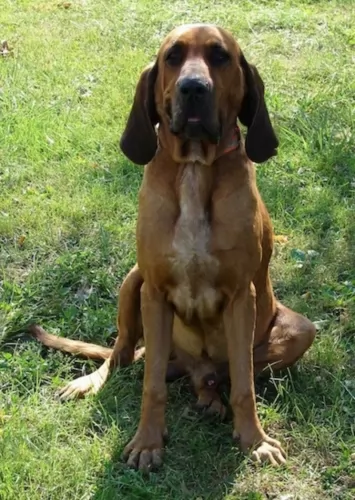 The Majestic Tree Hound is a fairly new crossbreed dog. While the actual breed is very recent, the stem stock goes way back to medieval times.
The Majestic Tree Hound is a fairly new crossbreed dog. While the actual breed is very recent, the stem stock goes way back to medieval times.
The dog’s heritage goes back to the St. Hubert Hound named after Francois Hubert. He bred the best scenting hounds in Southern France.
In fact when France experienced political unrest that resulted in emigration to the United States, they brought their dogs, among them hound dogs which were then crossed with other dogs. Bloodhounds, English Foxhounds, American Coon and Big Game Hounds have all contributed to the Majestic Tree Hound after a long time of breeding to bring forth a hound that had sharp scenting abilities as well as a balanced temperament.
The origin of the Majestic Tree Hound is the United States.
Today they are not seen much outside the United States. The first Majestic's were registered with the National Kennel Club in April 1980.
 The Native American Indian Dog is an ancient breed, that some consider to be feral. It is a landrace breed that developed with the indigenous peoples North America. These dogs originally looked and sounded like wolves and it is likely that their ancestry is tied to wolves crossed with pre-Columbian American dogs that came to the America’s with the first peoples. There are some that believe the Native American Indian Dog is a connecting line back to the dogs or wolves that over 12,000 years ago were the first to be domesticated by human beings.
The Native American Indian Dog is an ancient breed, that some consider to be feral. It is a landrace breed that developed with the indigenous peoples North America. These dogs originally looked and sounded like wolves and it is likely that their ancestry is tied to wolves crossed with pre-Columbian American dogs that came to the America’s with the first peoples. There are some that believe the Native American Indian Dog is a connecting line back to the dogs or wolves that over 12,000 years ago were the first to be domesticated by human beings.
They are now a rare breed in the wild and a small group of domesticated dogs. Fossil studies in recent years suggests that the Native American Indian Dogs came to North America about 4500 years after the first indigenous peoples. It is believed that the Native Americans bred the dogs that traders and explorers brought with them to the native coyote as well. This created a breed specific to North America and called the Common Native Dog or the Common Indian Dog. The original NAID was a mix of many different breeds of dogs and wild canines.
Today’s NAID is said to be raised on Indian reservations in the United State and represent a mix of Chinook, Husky, German Shepherd Dog and Malamute, along with perhaps some of today’s wolf mixed in. This dog is raised domestically and is socialized to life with humans. They are the last remaining breed from all the Native North American dogs that lived with the original people of the Americas. They are also thought to have an ancestry similar to the Australian Dingo.
They are a devoted, protective and loyal breed though they tend to be shy. They need to be outside for the majority of the day and don’t do well in crates. They need a fenced yard and room to roam. They are working dogs that hunted, pulled sleds and guarded their homes. They still need a job to so.
Today the North American Indian Dog is being bred to replicate the temperament and appearance of the originals. Although there are many breeders working from the founding breeder with original stock, there are only six that are officially given authorization to breed the NAID. They are registered by Terra Pines with the National Kennel Club but not recognized by the AKC and UKC.
The breed name NAID is trademarked by Karen Markel of Majestic View Kennels in the 1990’s. Today the breed is nationally recognized as a breed very much like the original Native American dogs, The breed is intelligent and quite healthy. They enjoy people and engage in many companion activities.
Whatever its true ancestry the current Native American Indian Dog (NAID), today’s version is not recognized by the AKC, but they are recognized by the Dog Registry of America, the Native American Indian Dog Registry and the National Kennel Club.
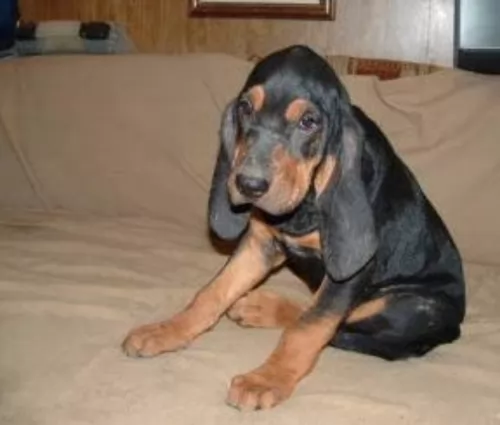 The Majestic Treehound is a large sized working dog. This dog is a cross between the Bloodhound and the Black and Tan Coonhound. Both male and female stand at roughly 61-76 cm in height and weighs in at about 33 – 50kg.
The Majestic Treehound is a large sized working dog. This dog is a cross between the Bloodhound and the Black and Tan Coonhound. Both male and female stand at roughly 61-76 cm in height and weighs in at about 33 – 50kg.
If you want your dog to become a parent, you can expect between 2 to 6 of the cutest puppies.
The coat is smooth, short and dense and comes in a number of colors such as black, black and tan grey and white as well as red and blue ticking.
The dog has sunken brown or yellow eyes, particularly long, floppy ears, a deep chest and a long tail. The tail is set high and is thick at the base and is essentially carried in accordance with the dog’s mood. The tail is never carried over the back. There was a time when the tail of the Majestic was docked, giving him an attractive, compact look. They are powerfully built dogs with a dignified look to them.
The Majestic Treehound has always been a most fearless and adept hunter and he is a dog that just loves being busy. They are also loyal and devoted companions for their human families.
He is a huge dog but he is gentle, good natured and kind with children and is also willing to get on well with pets in the home. You won’t find him being much of a guard dog though because he is just too friendly for this.
He is a dog that is going to need regular exercise, and his sheer size and exercise requirements will make it that he is better off living in the countryside than in the city.
He is an intelligent dog who will be easy to train. Training and socialization will be good for him as he knows exactly how to behave in different situations. He doesn’t want to be left on his own for too long because he bonds closely with his owners and wants to be around them constantly.
 There are two sizes of the North American Indian Dog – they are medium and large. They have dense short double coats, or they have long top coats and a fairly dense undercoat. They come in a variety of colors mostly black or silver but there is also a tortoiseshell. These tortoiseshell colored dogs are considered by Native Americans to be sacred beings. These tortoiseshell dogs are strikingly good looking and are called Spirit Dog.
There are two sizes of the North American Indian Dog – they are medium and large. They have dense short double coats, or they have long top coats and a fairly dense undercoat. They come in a variety of colors mostly black or silver but there is also a tortoiseshell. These tortoiseshell colored dogs are considered by Native Americans to be sacred beings. These tortoiseshell dogs are strikingly good looking and are called Spirit Dog.
They all have the look of a Siberian Husky or Alaskan Malamute with upright ears and almond shaped eyes that are anywhere from amber to brown with some blue. Usually their tails are down and long but can be curled. They resemble the wolf and have that wild, feral appearance. They can be as large as over one hundred pounds or average seventy to eighty pounds. They are strong, alert and intelligent. They are considered to be hypoallergenic, shedding their coat only once a year.
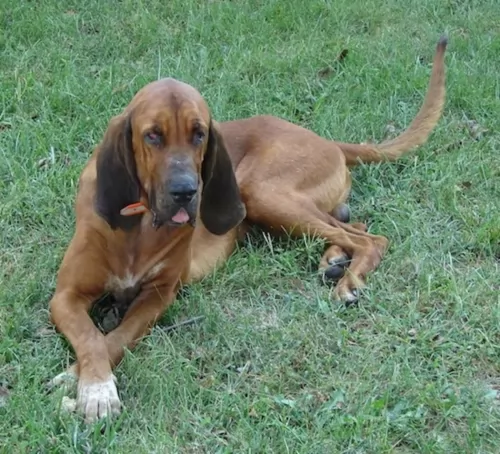 This large attractive dog has a gentle nature and is loving and affectionate towards his human family, getting on well with children and other pets in the family.
This large attractive dog has a gentle nature and is loving and affectionate towards his human family, getting on well with children and other pets in the family.
As with most little dogs, this big dog doesn’t like to be left alone for a long time. With training and socialization he becomes obedient and amicable, knowing how to behave well so that he can be taken anywhere.
Treat this loving dog with love and care and he is guaranteed to make you a splendid family pet.
 This breed is gentle and loving with children.
This breed is gentle and loving with children.
Endurance, strength and good health.
Low adaptability to small living spaces and lack of outside space; don’t do well in crates and need an experienced dog owner.
They are highly intelligent, love to learn and are just a little stubborn.
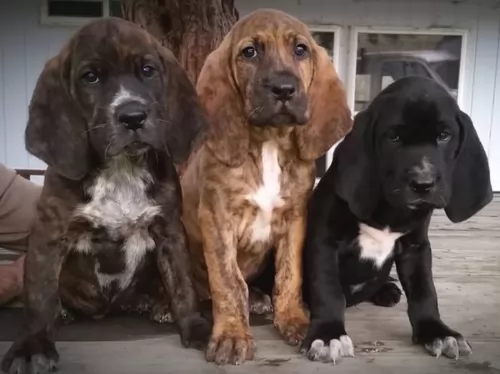 The Majestic is a robust breed, and with good food and exercise he can live to be between 10 and 13 years of age.
The Majestic is a robust breed, and with good food and exercise he can live to be between 10 and 13 years of age.
It has been discovered that like many other dogs, he can battle with hip dysplasia. Large dogs are more prone to hip dysplasia. It is an abnormal formation of the hip socket. It’s a serious condition that can cause arthritis and lameness.
Hip dysplasia often begins when a dog is still a puppy. One of the symptoms is difficulty with getting up after lying down, pain in hip joints and even loss of muscle mass. You will need to get your pet to the vet. The vet will perform a complete physical exam on your dog and then talk to you about treatment.
 This is a fairly healthy, long lived breed having spent so much of its history in isolation. They are prone to some of the issues that affect all medium to large breeds.
This is a fairly healthy, long lived breed having spent so much of its history in isolation. They are prone to some of the issues that affect all medium to large breeds.
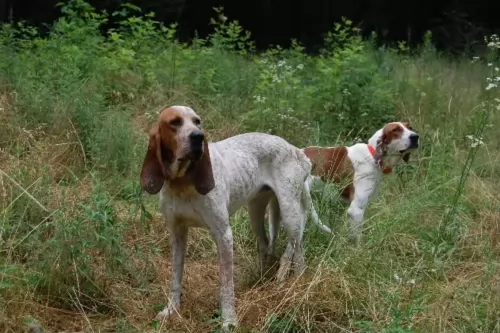 Occasional brushing, perhaps twice a week, will be enough to maintain this dog’s short coat. The long ears tend to drag on the ground, collecting dirt and moisture, and the ears particularly will need to be washed or wiped down and checked inside for infection.
Occasional brushing, perhaps twice a week, will be enough to maintain this dog’s short coat. The long ears tend to drag on the ground, collecting dirt and moisture, and the ears particularly will need to be washed or wiped down and checked inside for infection.
This is a dog with high exercise requirements. A walk a day for him is a good thing but it won’t be enough – he will need some rough and tumble games and want to join you on hikes, swimming and jogs.
Majestic Tree Hounds require nutritious food. If you want to use commercially manufactured food, make sure its the better one as some of the cheaper brands put fillers, preservatives and colorants in and this can cause a whole lot of damage for your dog.
Buy quality food for your pet. The idea is to keep things simple for your big dog so that he doesn’t succumb to digestive problems. Apart from top quality kibble, homemade food will be excellent for him. Boiled chicken cooked in some coconut oil with some brown rice and pasta and some cooked or raw vegetables will be delicious for your dog. You can add it to his dry kibble. Remember to ensure he always has cool, fresh water.
 Because of their propensity to grow to quickly the puppy should only stay on puppy food for 8-10 months. Feed them a high quality large dog puppy food 3-4 times daily for a total of 2-21/2 cups per day.
Because of their propensity to grow to quickly the puppy should only stay on puppy food for 8-10 months. Feed them a high quality large dog puppy food 3-4 times daily for a total of 2-21/2 cups per day.
Feed a high protein, large dog dry food twice a day for a total of two cups. Do not over feed. Do not feed right before or after exercise do to the risk of bloat.
Healthy, strong long lived dog.
This is not an indoor, couch potato dog. They need exercise and they need space. They won’t do well as apartment dogs unless you can take them to a dog park for over an hour every day. They really need a large fenced in yard. They don’t do well in crates either. He doesn’t understand crates and thinks you are punishing him. They make great hunters, search and rescue dogs, service dogs and therapy dogs. They will succeed at pulling competitions and weight competitions.